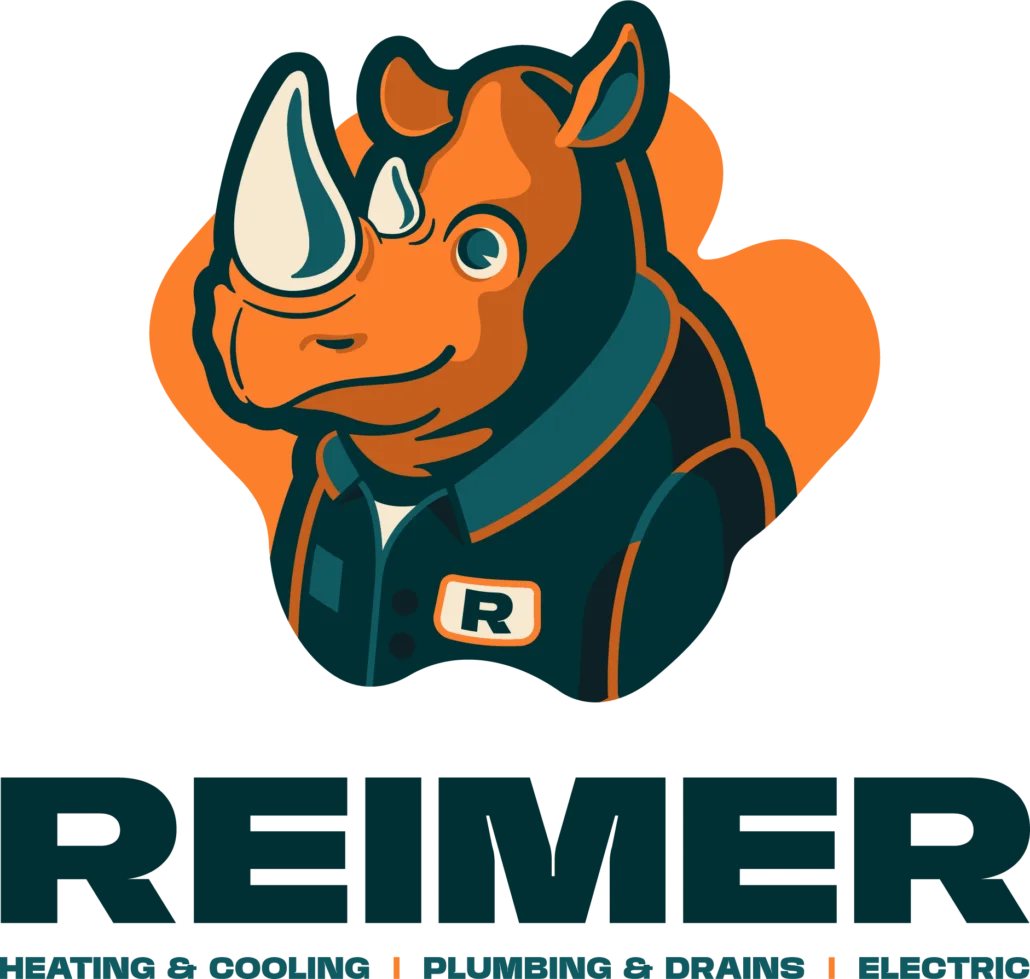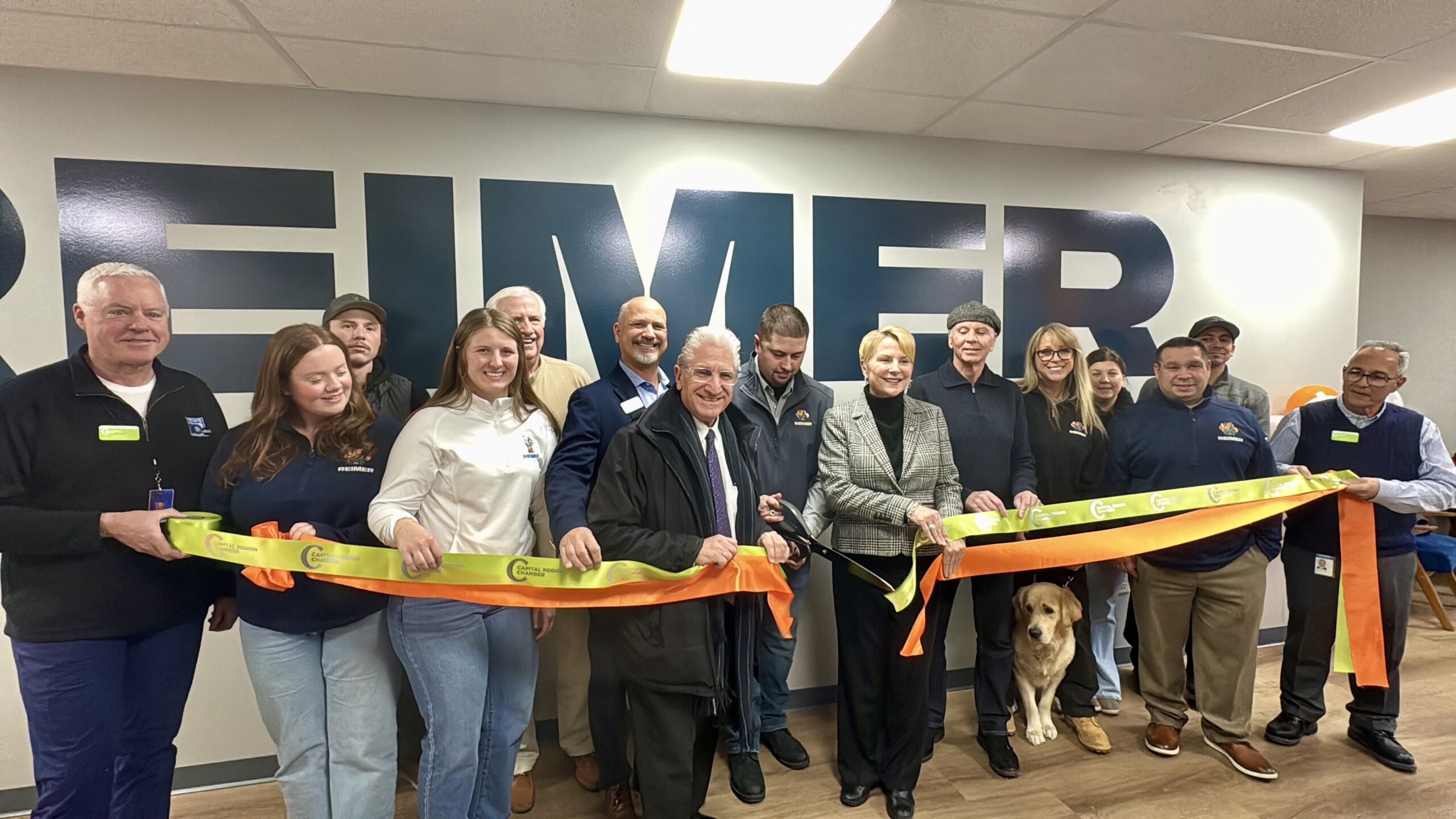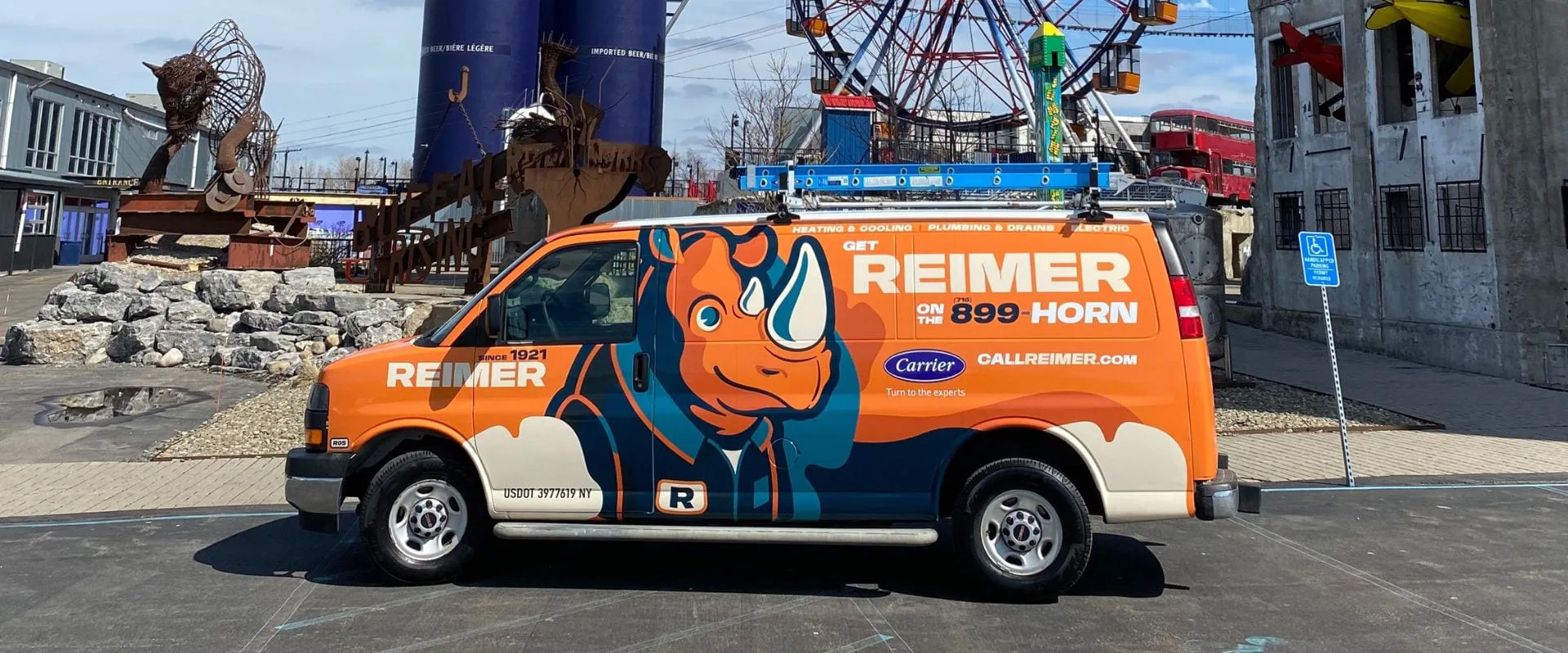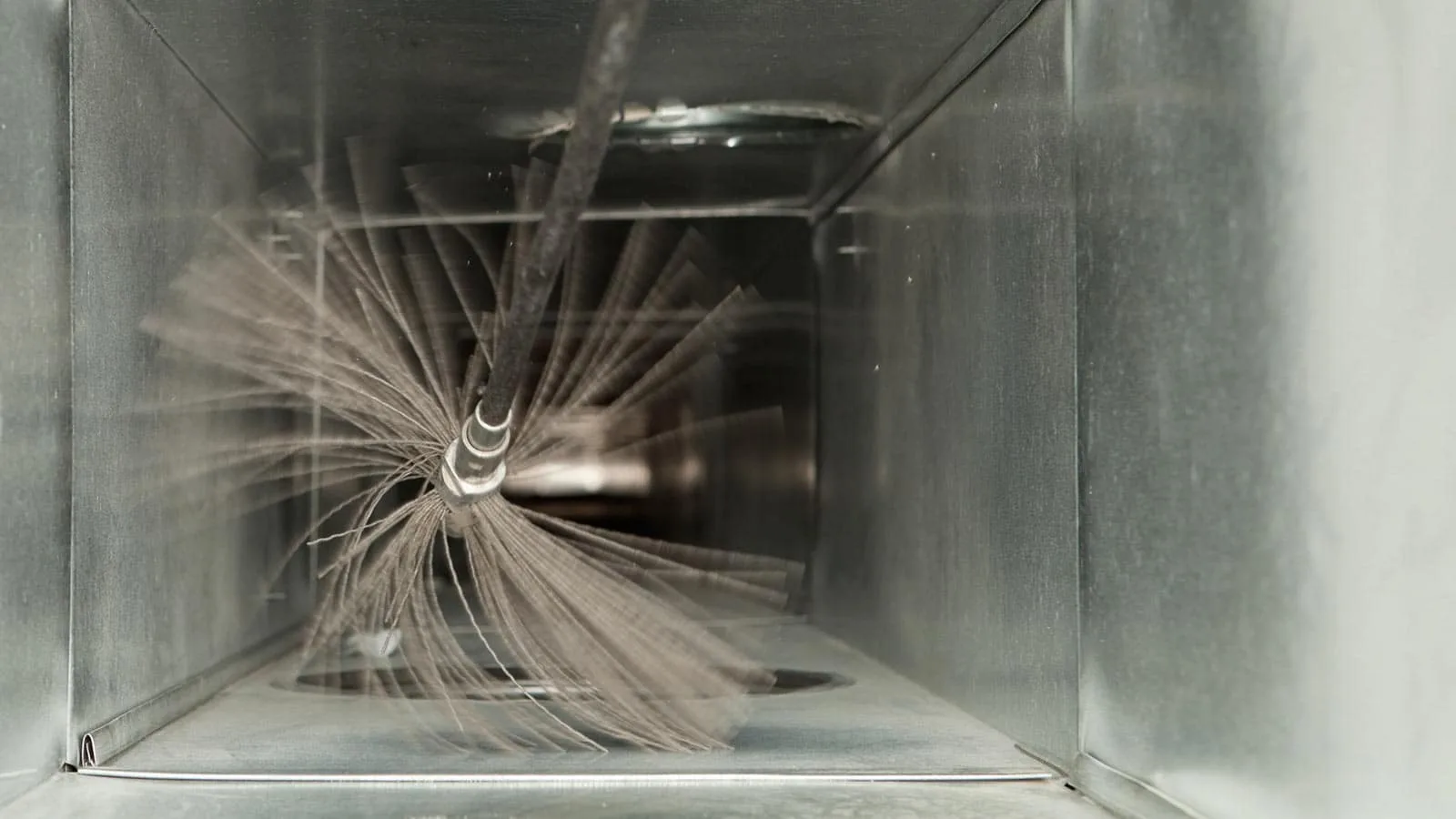It’s summer. The last thing you want when the temperatures outside are rising is to be wondering why your air conditioner isn’t working.
An air conditioner can fail to properly cool the room for a number of reasons. In this blog, we’ll review 7 of the most common reasons that your air conditioner isn’t working and is unable to cool your home. If you’re experiencing AC problems, call Reimer this summer for AC repair.
Get answers to the most common HVAC questions.
You have questions about your air conditioner and heater. We have answers. Check out our latest infographic!
Here’s 7 reasons your air conditioner isn’t working
1. Dirty condenser coils
It’s possible that your air conditioner’s condenser coils are loaded with dirt or other debris, preventing the air conditioner from cooling your home effectively. Here’s why: your condenser coils are responsible for dissipating heat outside during the cooling process. The less effectively they can do that, the less cool your home will be.
Best case, your air conditioner can still get your home down to the right temperature, but has to expend more energy to do so, costing you more money on your energy bills. Worst case, dirty coils can cause the system to overheat and shut down entirely, leaving you and your home without cooling.
One good way to ensure that your condenser coils are clean ahead of summer is by scheduling an AC tune-up in the spring. When a certified, experienced technician looks over your system, they’ll clean the coils and ensure they’re at max heat dissipation.
2. Coolant problems
Coolant is quite literally the lifeblood of your air conditioner. Your air conditioner’s coolant moves heat energy out of your home and puts it outside, thereby cooling your home’s interior.
The coolant exists in a closed-loop system, both because of its toxicity and because that’s what drives energy-efficient cooling. In theory, free from evaporation or any means to escape, your AC’s coolant should last for the life of the unit.
That’s theory. In practice, however, coolant can leak, especially if the lines feeding it to the outdoor evaporator are worn or damaged. Such a coolant leak needs to be dealt with immediately; keep pets and children away and call in your local HVAC technicians.
Even beyond the toxicity of coolant, insufficient coolant means less heat energy is being transferred out of your home. Let’s return to that blood analogy: the blood in your body transports oxygen and removes carbon dioxide. If you were steadily losing blood, that process would be slowed or stopped altogether, causing serious problems.
Whether you suspect a coolant leak or insufficient coolant, call in a professional from Reimer to diagnose the problem. If low coolant is the issue, they’ll refill the coolant as required.
3. Clogged air filter
This is a very common reason that air conditioners work harder than they should and eventually break down. However, unlike every other item on this list, it’s the one that most homeowners have the power to do something about.
Your air conditioner can produce all the cooling it wants. If it can’t get that air to your home because the air filter is clogged up with dirt, dust, or other debris, your home isn’t going to cool down. This starts a vicious cycle, as your air conditioner continues to ramp up the cooling, which isn’t getting to the thermostat.
If you’re able, locate your air filter. Some air filters are reusable, and made to be cleaned. If so, make a plan to clean it at least once per-month in the summer. We recommend vacuuming it and then spraying it down with a hose to remove baked-in dust and dirt. If your air filter is not reusable, make sure you make a trip to the hardware store to grab a new one on a regular basis.
If you have questions about your home’s air filters, or want an opinion on the airflow in your home, call Reimer. Our techs are true cooling experts who are eager to help you with your home’s needs.
(Again, this is a good time to remind you that a spring tune-up can make a big difference for your air filters and your system as a whole!)
4. A defective thermostat
Most AC problems have to do with a lack of maintenance or a fault within the system. In some cases, however, the issue can be that the thermostat is sending the wrong temperature readings to the air conditioner. This manifests in two ways:
- The thermostat tells your air conditioner that the home is cold enough, when it’s really not. The air conditioner doesn’t turn on or respond to you lowering the temperature, leaving your home hot.
- The thermostat tells your air conditioner that the home is hot, when really it’s at temperature. The air conditioner runs endlessly and is constantly starting and stopping in an attempt to lower the temperature.
If you suspect that your thermostat is non-responsive, or that there’s a problem with the connection of your air conditioner and your thermostat, you need to call in the experts to take a look. By the way, thermostat functionality is something that your Reimer tech will examine during your AC tune-up in the spring, if you schedule one.
5. A faulty compressor
Another reason that the air conditioner does not properly cool the room is due to a defect in the compressor. The compressor is the main cooling unit of the air conditioner. It is simply a motor that compresses the coolant and circulates it through the condenser coils and the evaporator. If the compressor becomes faulty, the air conditioner will not be able to cool the room.
6. Very high temperatures
It’s a general rule of thumb that air conditioners can only realistically cool your home about 20-30 degrees. Yes, they can often stretch beyond that, but at some point, you’re running your air conditioner inefficiently and not sufficiently removing humidity.
Here in Buffalo and Western New York, we don’t typically encounter the type of summer highs seen in the South or West. That being said, when a heat wave rolls into town, your AC may struggle to get down to 65 degrees like it does on days where it’s 75 out.
This isn’t something that necessarily requires repair, but if you do want a technician to take a look at your thermostat and adjust for higher summer temperatures, give us a call.
7. An undersized (or oversized) air conditioner
Of all the items on this list, this is the one that you really can’t do much about once the air conditioner is installed. An air conditioner that’s too big (or too small) will just run inefficiently (“Bigger is better” is actually a common AC myth). Here’s why:
- A too-small AC unit will have to run constantly to keep up with the space you’re asking it to cool. It might seem like your air conditioner isn’t working at all, just because it’s losing a battle it can’t compete in.
- A too-big AC unit will have trouble running smoothly. Instead, after turning on, it will run, quickly reduce the temperature, and then shut off. Then, it will have to repeat that process. That constant starting and stopping, over time, causes not just wear-and-tear on the system, but reduces your home’s energy-efficiency.
(Size is just one of the things you should consider when buying a new AC system)
This is why it’s so important that you have a professional HVAC technician meet with you and provide you with a list of air conditioners that are right for your home and your cooling needs. Finding that “Goldilocks” air conditioner is easy here in Buffalo: just give Reimer a call for a free in-home estimate.We’re air conditioning installation experts.
Call Reimer for help diagnosing why your air conditioner isn’t working
Now that you known the 7 deadly sins of air conditioners, you can better diagnose why your air conditioner isn’t working on the hottest days of summer—and decide when you need to quickly diagnose problems and determine when you need a professional to look at your system. Here in Buffalo and Western New York, we’re those professionals!
Contact Reimer when you need AC repair this summer.






